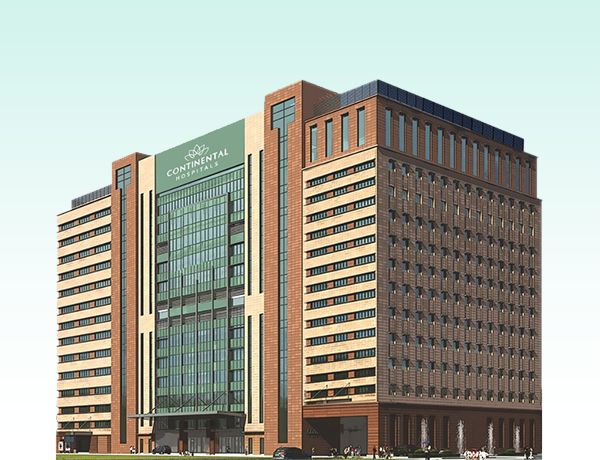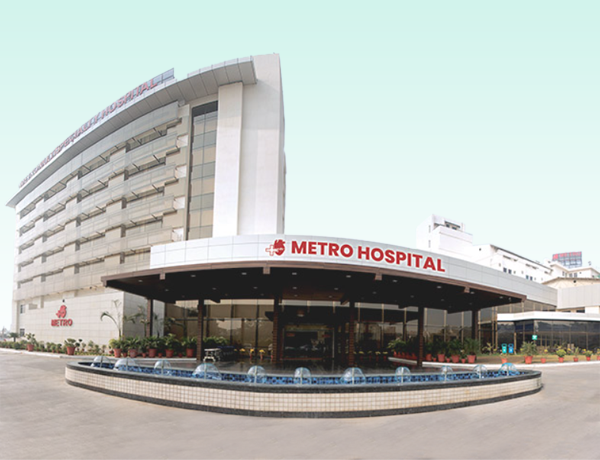Goodpasture syndrome
Goodpasture syndrome (or anti-GBM disease) is a rare, life-threatening autoimmune disease that affects the lungs and the kidneys. It happens when the immune system mistakenly attacks a protein called collagen because it recognizes it as a foreign substance. In Goodpasture syndrome, the body produces proteins (antibodies) that attach to the collagen in certain parts of the lungs and the kidneys. When they attach to the collagen, these antibodies cause severe inflammation and destruction of those tissues.

Symptoms
Goodpasture syndrome is a pulmonary-renal syndrome. It affects the lungs (pulmonary) and the kidneys (renal). Lung-related symptoms usually appear first. They include:
- Difficulty breathing, chest pain, cough and a rattling noise when taking a breath.
- Fatigue.
- Fever.
- Nosebleeds and coughing up blood.
- Pale skin (pallor).
- Goodpasture syndrome symptoms that result from kidney damage include:
- Anemia.
- Blood in urine (hematuria).
- Decrease in urine (pee).
- High blood pressure.
- Nausea and vomiting.
Causes
As a type of autoimmune disorder, Goodpasture syndrome causes antibodies produced by the immune system to attack collagen. Collagen is a protein that has many functions. It forms part of the structure of many tissues and helps blood clot, among others. Goodpasture syndrome attacks collagen in the glomerular basement membrane (GBM) of the kidneys. These anti-GBM antibodies also attack collagen in the lung’s air sacs, destroying the tissues and leading to bleeding and difficulty breathing.
Sometimes, Goodpasture can develop after an infection, such as a cold or the flu. People who smoke, use cocaine or are exposed to metal dust and hydrocarbon chemicals (such as methane or propane) are more likely to develop Goodpasture syndrome. Scientists believe that these environmental factors may trigger the disorder in people who have HLA-DR15.
Goodpasture Syndrome Diagnosis
To diagnose Goodpasture syndrome, the following tests and procedures may be conducted:
- Blood tests: To detect the presence of anti-GBM antibodies and evaluate kidney and lung function.
- Urine tests: To check for the presence of blood and protein in the urine.
- Chest X-ray or CT scan: To examine the lungs for signs of damage or bleeding.
- Kidney biopsy: A small sample of kidney tissue is taken and examined under a microscope to determine if there is glomerular damage.
- Pulmonary function tests: These tests assess lung function and oxygen levels.
Who Needs Goodpasture Syndrome Treatment
Individuals who are diagnosed with Goodpasture syndrome or show symptoms associated with kidney and lung involvement require prompt treatment. It is essential to consult with a nephrologist (kidney specialist) or a pulmonologist (lung specialist) for accurate diagnosis and appropriate management.
When to See a Specialist
It is recommended to see a healthcare specialist if you experience persistent symptoms such as coughing up blood, shortness of breath, or changes in urinary habits. Early intervention is crucial to prevent further damage and improve outcomes.
Types of Treatment for Goodpasture Syndrome
Treatment for Goodpasture syndrome aims to suppress the immune system and minimize kidney and lung damage. The following treatment options may be employed:
- Plasma exchange therapy: Blood is filtered to remove harmful antibodies and replaced with healthy plasma.
- Immunotherapy: Medications such as corticosteroids and immunosuppressants are used to suppress the immune response and reduce inflammation.
- Medications to control high blood pressure: Drugs to manage blood pressure and protect the kidneys.
- Supportive care: Treatment of complications and symptom management, such as oxygen therapy or dialysis if kidney function is severely impaired.
Road to Recovery
The road to recovery from Goodpasture syndrome depends on the individual’s response to treatment and the extent of organ damage. Regular follow-up with healthcare specialists, adherence to prescribed medications, and lifestyle modifications are important for long-term management.
Risk Management
To manage the risks associated with Goodpasture syndrome, it is crucial to follow these recommendations:
- Strict adherence to prescribed medications and treatment plans.
- Regular monitoring of kidney and lung function.
- Avoidance of smoking and exposure to environmental toxins.
- Maintaining a healthy lifestyle, including a balanced diet and regular exercise.
- Prompt reporting of any new symptoms or changes in health to the healthcare provider.
Frequently Asked Questions
1. Is Goodpasture syndrome hereditary?
Goodpasture syndrome is not typically considered a hereditary condition. However, genetic factors may play a role in predisposing individuals to autoimmune diseases, including Goodpasture syndrome.
2. Can Goodpasture syndrome recur after treatment?
Goodpasture syndrome can recur in some cases, although it is relatively rare. Regular monitoring and follow-up with healthcare specialists are essential to detect any signs of relapse.
3. Can Goodpasture syndrome cause permanent kidney or lung damage?
If left untreated or inadequately managed, Goodpasture syndrome can cause permanent damage to the kidneys and lungs. Early diagnosis and timely treatment are crucial to prevent irreversible organ damage.
4. Are there any lifestyle modifications that can help manage Goodpasture syndrome?
While lifestyle modifications alone cannot treat Goodpasture syndrome, adopting a healthy lifestyle can contribute to overall well-being. This includes eating a balanced diet, exercising regularly, and avoiding smoking or exposure to secondhand smoke.
Treatians As The Best Choice
Treatians understand that seeking medical treatment abroad can be a daunting experience for patients and their families. That’s why the company offers end-to-end support to its clients, from the initial consultation to post-treatment care. The company provides personalized treatment plans that are tailored to meet the individual needs of each patient, and its team of dedicated professionals is always on hand to provide guidance and support throughout the entire process. Contact us at +91-7982312582, drop your email [email protected]
- Trauma & intensive care
- Aged Care
- Community Services
- Diagnosis & Investigation
- Medical & Surgical
- Mental Health
- Rehabitation
- Specialised Support Service
Service Recipient Says

Oxmox advised her not to do so, because there were thousands of bad Commas, wild Question Marks and devious.
Kolis Muller NY Citizen
Oxmox advised her not to do so, because there were thousands of bad Commas, wild Question Marks and devious.
Kolis Muller NY Citizen

























Oxmox advised her not to do so, because there were thousands of bad Commas, wild Question Marks and devious.
Kolis Muller NY Citizen